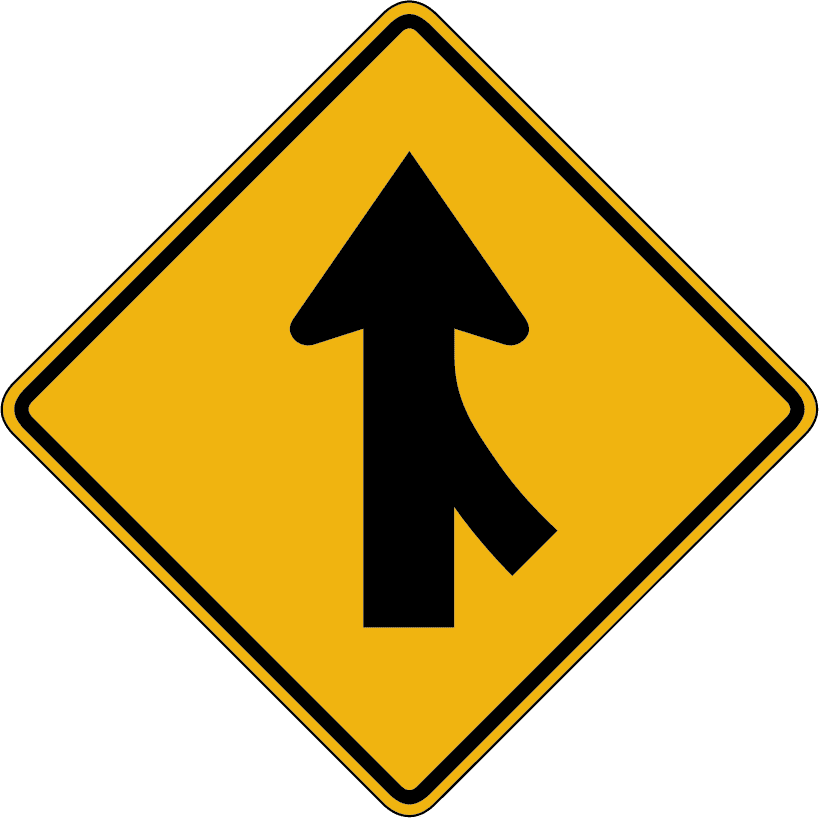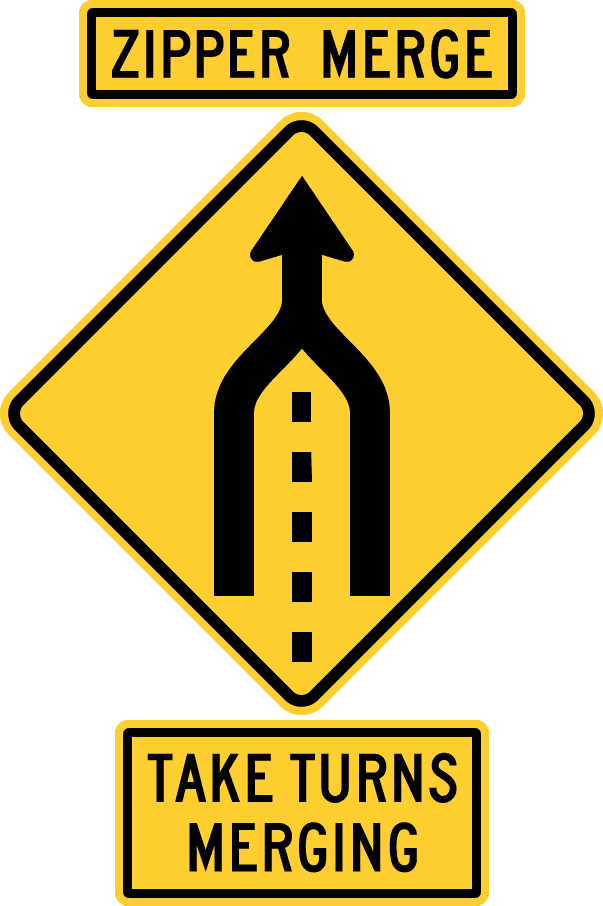Merge Sign 2025 Meaning, Quiz, Definition, shape, location, color: Learn all about Merge signs in the USA, including their meaning, definition, shape, location, and color. Our guide provides practical tips for drivers, including how to prepare for a merge, yield to traffic, and use the zipper merge method.
Discover interesting facts about Merge signs and their role in promoting safe and efficient traffic flow on American roads. Whether you’re a new driver or an experienced one, our guide will help you stay safe and confident when approaching a merge point.
Merge Sign
It’s a common sight on roads and highways throughout the United States, but do you know what it means and how to navigate it safely? A Merge sign is typically used to indicate that two separate lanes of traffic are coming together and that drivers need to merge into a single lane.
Merge signs play an important role in promoting safe and efficient traffic flow on American roads, and understanding their meaning, shape, location, and color can help drivers stay alert and avoid accidents.
Meaning:
A Merge sign is a type of regulatory traffic sign that indicates an upcoming merge point on a roadway. The sign alerts drivers that they will need to merge with traffic from another lane or entrance ramp, and provides instructions on how to proceed.
Definition:
Merge signs are designed to promote safe and efficient traffic flow by giving drivers advance notice of an upcoming merge point, and instructing them on how to merge smoothly and safely.
Shape:
Merge signs typically feature a yellow diamond shape with a black border and an upward-pointing black arrow in the center. The background of the sign is usually yellow, although some signs may have a white background.
Color:
The background of Merge signs is usually yellow, which is intended to be highly visible and attention-grabbing. The text and arrow on the sign are usually black, which provides a high contrast and makes the sign easier to read from a distance.
Quiz
Location:
Merge signs are usually located on the side of the road or above the roadway, and are typically placed at least 250 to 500 feet before the merge point to give drivers plenty of time to prepare.
Important things to remember
- Pay attention: Always be alert for Merge signs when you’re driving, especially when approaching highway entrance ramps or construction zones.
- Prepare early: Begin preparing for a merge as soon as you see the Merge sign, by checking your mirrors and blind spots, and signaling your intention to merge.
- Yield to traffic: When merging, always yield to traffic in the other lane. Look for gaps in traffic, and adjust your speed as needed to merge smoothly and safely.
- Avoid sudden maneuvers: Don’t make sudden lane changes or maneuvers when merging, as this can be dangerous and cause accidents. Instead, merge gradually and smoothly.
- Follow signage: Always follow the instructions on the Merge sign, which may include additional information such as “Left Lane Ends” or “Right Lane Ends” to indicate which lane is merging.
- Use the zipper merge: When traffic is heavy and both lanes are moving slowly, consider using the zipper merge method, where drivers in both lanes take turns merging, alternating between one car from each lane.
- Be patient: Merge points can be stressful and frustrating, but it’s important to remain patient and calm. Aggressive driving or impatience can lead to accidents and road rage incidents.
DMV Road Sign/Traffic Signal Practice Test
- DMV Road Signs and Meanings 2025
- DMV Road Signs Practice Test 2025 [with Explanation]
- Other Road Sings in the USA

